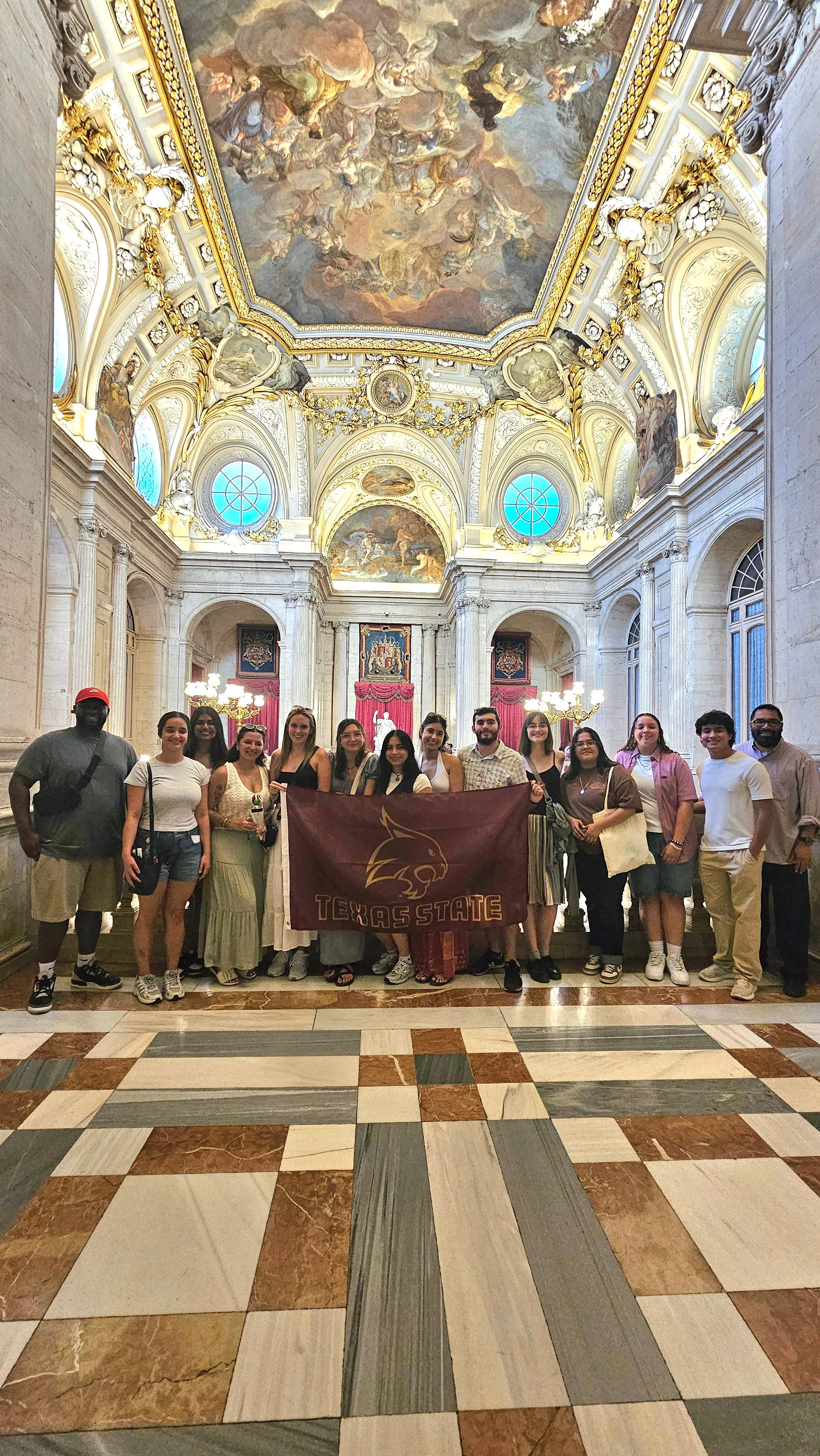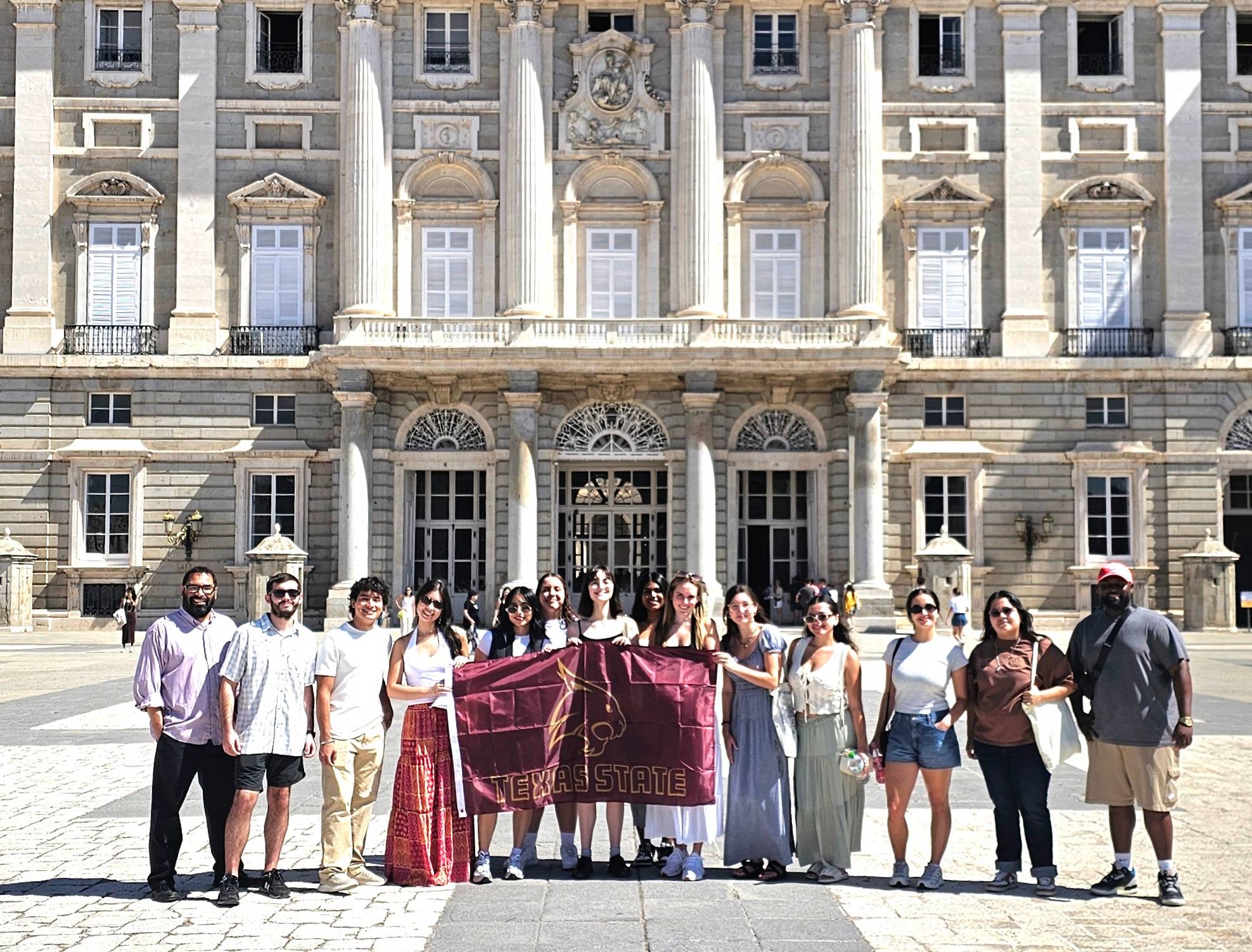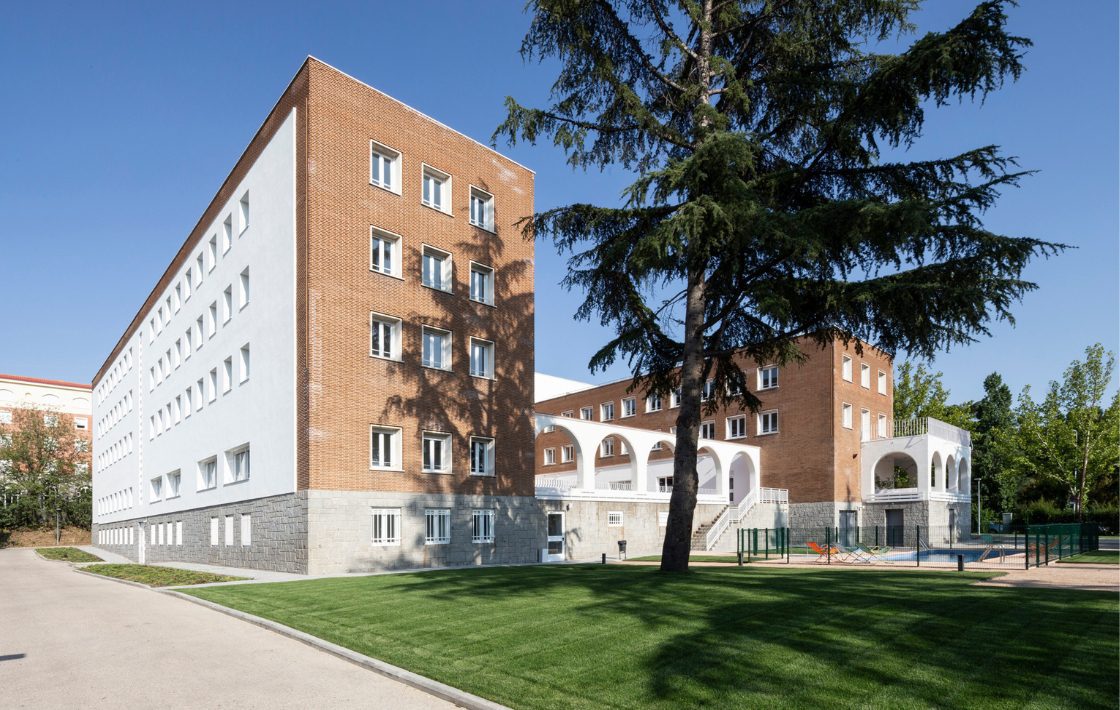All program information is subject to change.
Location & Partner
Madrid, Spain
Madrid, the capital of Spain, is located in the center of the country and has a population of around 3.2 million. Known for its rich history, cultural vibrancy, and lively atmosphere, Madrid is a popular destination for many visitors. The city offers historical landmarks and museums such as the Royal Palace, Plaza Mayor, and the Prado. In addition, Madrid has ample green spaces to explore, including Retiro Park and Casa de Campo.
National Distance Education University (UNED)
TXST is partnering with the Universidad Nacional de Educación a Distancia (UNED) which is a public university in Spain specializing in distance learning with its headquarters in Madrid. Established in 1972, it is one of the largest universities in Spain and one of the largest distance education institutions globally with over 200,000 students.
Courses
CJ 4329 - Organized Crime
Dr. Andre Spence
Survey of organized crime in contemporary society. Includes attention to crime types and methods, motivation, affiliations, and the effects of this type of criminality. Related legal and law enforcement perspectives will be covered, along with international and cyberspace issues.
CJ 4331 - Serial Murder
Dr. Jeff Bumgarner
This course covers the phenomenon of serial murder and the police investigative response. Theories, concepts, and law enforcement analytic methods are covered in detail. Emphasis is placed on understanding the reality versus the myth of serial murder, serial killers, and criminal profiling.
CJ 4365 - Comparative Criminal Justice
Dr. Georgen Guerrero
A survey of the organizational, administrative and philosophical principles of criminal justice systems around the world.
The courses will be 5 weeks long in total, with 1 week of online coursework prior to travel, 3 weeks of in person coursework in Madrid, and 1 week of online coursework post travel.
While abroad, class will be held Monday - Thursday in classrooms at the UNED Madrid building. Each course will have around 10 students enrolled.
TXST Hub faculty are encouraged to incorporate the international location and culture into the course to create a meaningful learning experience for the students. UNED students and faculty will be invited to collaborate with TXST counterparts during the program through guest lectures and other activities.
Dates
Abroad
- Saturday, July 4th, 2026: Students arrive in Madrid, Spain
- Saturday, July 25th, 2026: Students depart Madrid, Spain
To Apply
- October 13th, 2025: Applications Open
- January 21st, 2026: Applications Close
Accommodation
Students will stay at a dorm style residence hall located near the UNED campus. While staying at Resa Miguel Antonio Caro, student will share double occupancy bedrooms with ensuite bathrooms. Students will also have access to shared areas such as a kitchen, recreation room, pool, gym, and other communal spaces. The residence hall has onsite laundry, dining, and Wi-Fi. The residence halls are within walking distance of the main UNED buildings, park, and a metro station.
Breakfast and dinner will be provided for students by the accommodation.
Cost
$200 Application Fee (non-refundable)
$300 Deposit (non-refundable)
$1,975 Program Fee Balance
$1,068.24 Tuition
$3,543.24
Airfare and Incidentals
Students should expect to pay the cost of airfare and incidentals such as food, souvenirs, tourist activities, etc. which are costs not paid to TXST.
Application Fee
This is a non-refundable fee that students will pay when applying to the program.
Deposit
This non-refundable deposit will be due by February 15th, 2026, and confirms the student's participation in the program.
Program Fee
This fee goes towards student accommodation, classroom use, and other program logistics while abroad. This will be due in May of 2026.
Tuition
Undergraduate students will pay $1,068.24 to earn credit for the 3 credit hour class they take while abroad. This will be due in May of 2026.
Transportation
Arrival and Departure
Students will be expected to secure their own transportation from the Madrid airport to Resa Miguel Antonio Caro on program arrival and departure days.
During the pre-departure orientations, students will be given guidance on this.
Around the City
Students can use the metro station which is within walking distance from the accommodation to get around the city.
To Class
Students can walk from the student residence halls to the main UNED building where their classes will be held.
How to Apply
- Meet with Academic Advisor to complete the required Academic Advising Form.
- Submit application to specific Hub course with the following:
- $200 application Fee (non-refundable)
- Signed Academic Advising Form
- If requested, meet with Hub Faculty to discuss application and program.
- Wait for decision email.

Student Expectations
Academic
Students on the Hub Program are expected to maintain a high standard of academic performance and integrity while abroad. While abroad students should expect to attend all classes, complete assignments on time, and actively participate in their coursework. Students should prepare to proactively manage their time and balance academic responsibilities with their free time during the program.
Behavior
As a participant on the Hub Program, students are expected to exhibit behavior that reflects positively on themselves and Texas State University. Students should demonstrate mature, responsible, and respectful behavior at all times while on the program. This includes respecting the cultural norms of the host country, being kind to fellow students and faculty, and treating classroom and living spaces with consideration. Upholding these standards will help ensure a successful program experience for everyone involved.
Physical and Mental Health
Students on the Hub Program are expected to prioritize their physical and mental health while abroad. This includes maintaining a physically healthy lifestyle by eating well, staying hydrated, taking necessary medication, and getting enough sleep. Students should be prepared for the physical demands of their new environment, such as different climates, terrain, or levels of activity.
Equally important is prioritizing mental health while abroad. Adjusting to a new culture and environment can be hard, and it's normal for students to experience some anxiety, culture shock, or homesickness during their time abroad. Students should prepare to experience these challenges during the program and develop a plan on how best to prioritize their own mental well-being while on the program.








